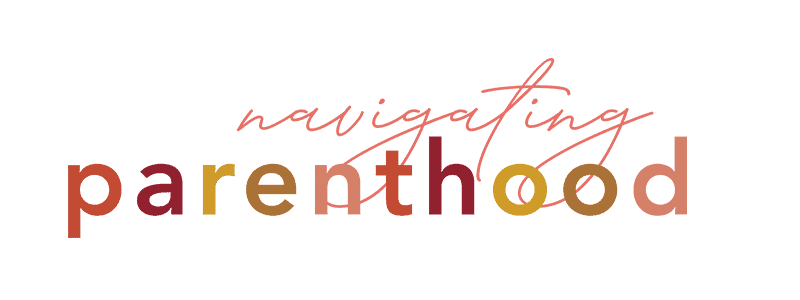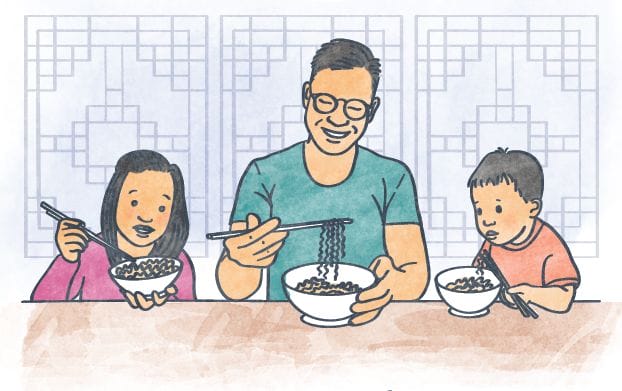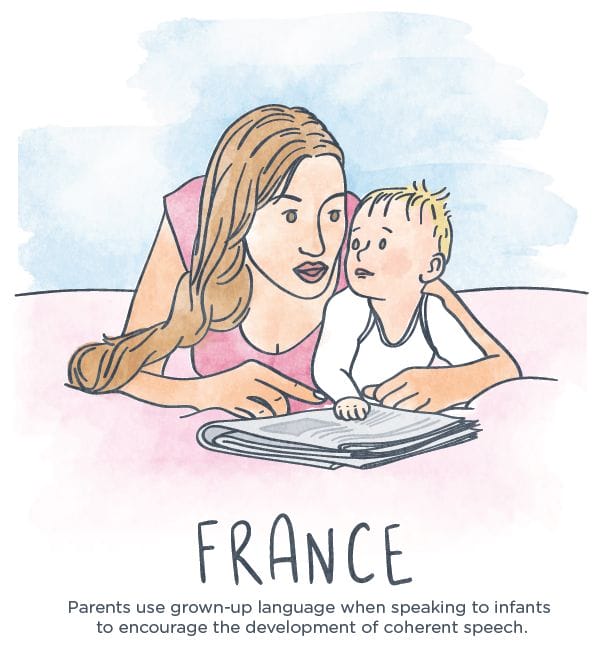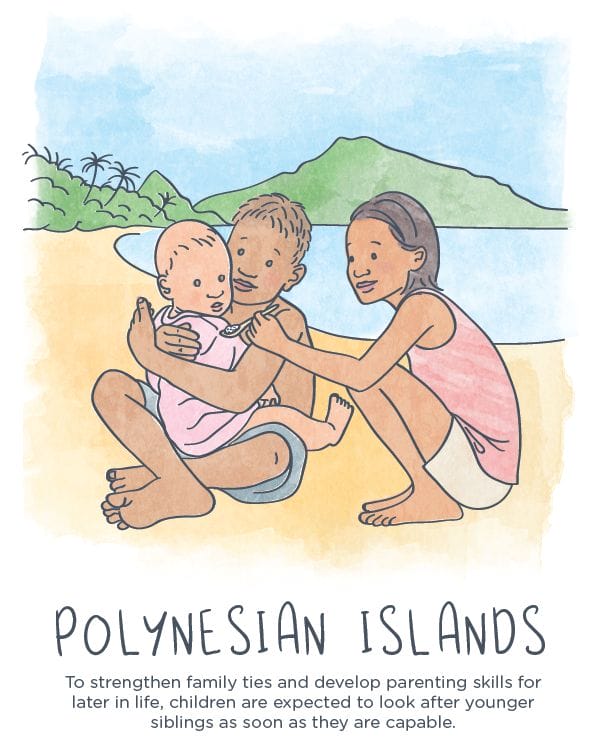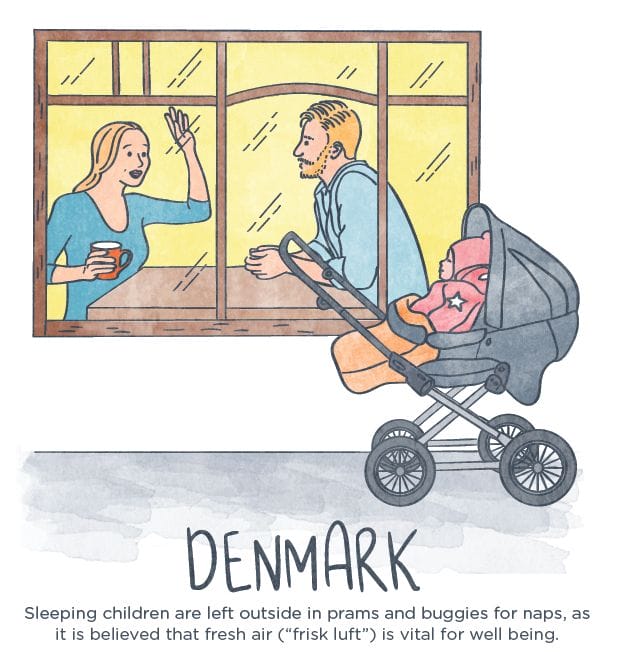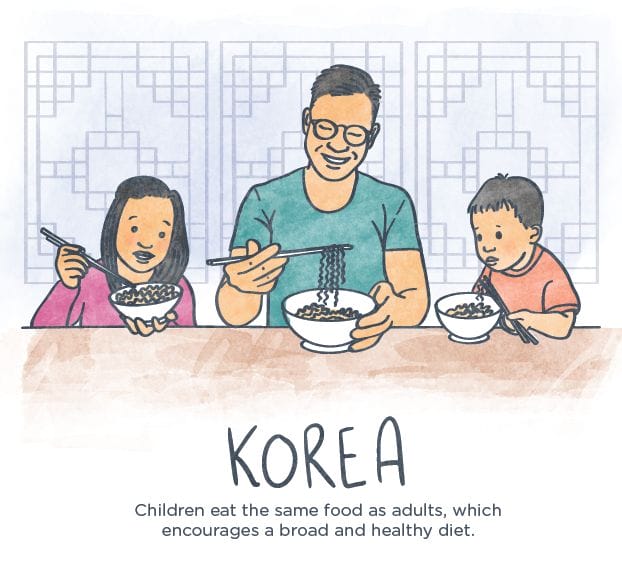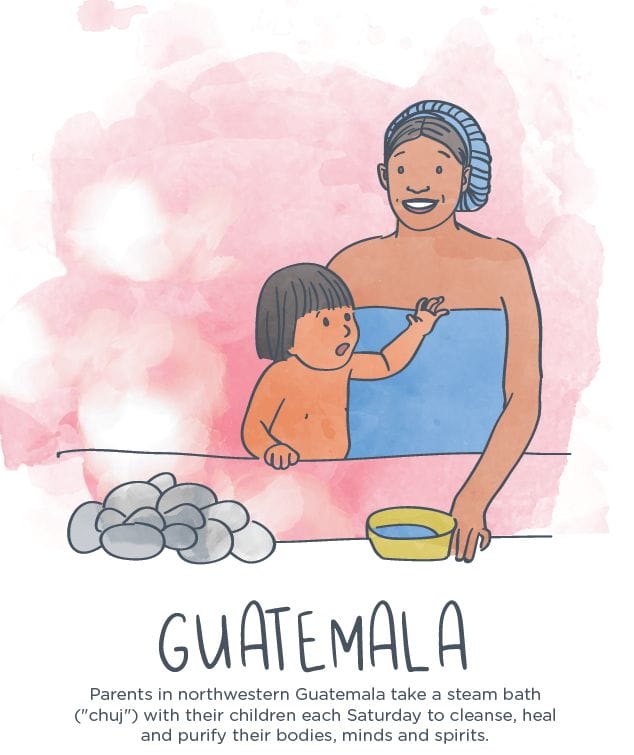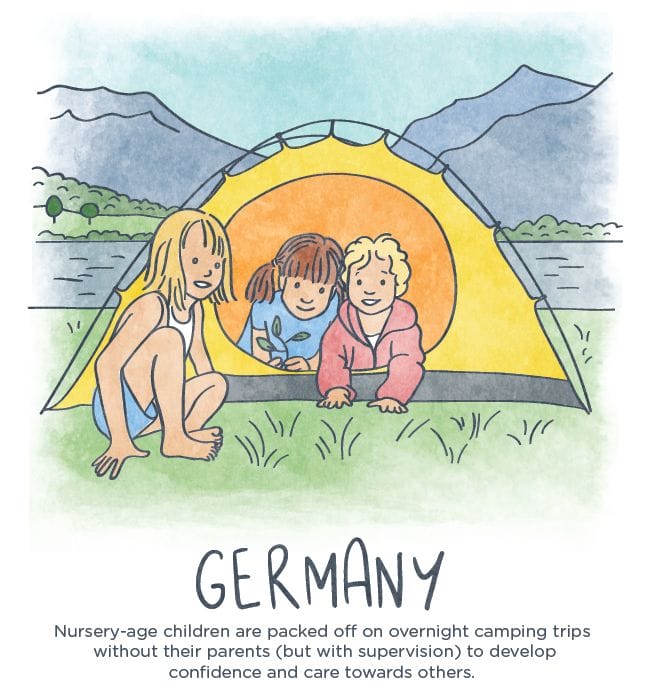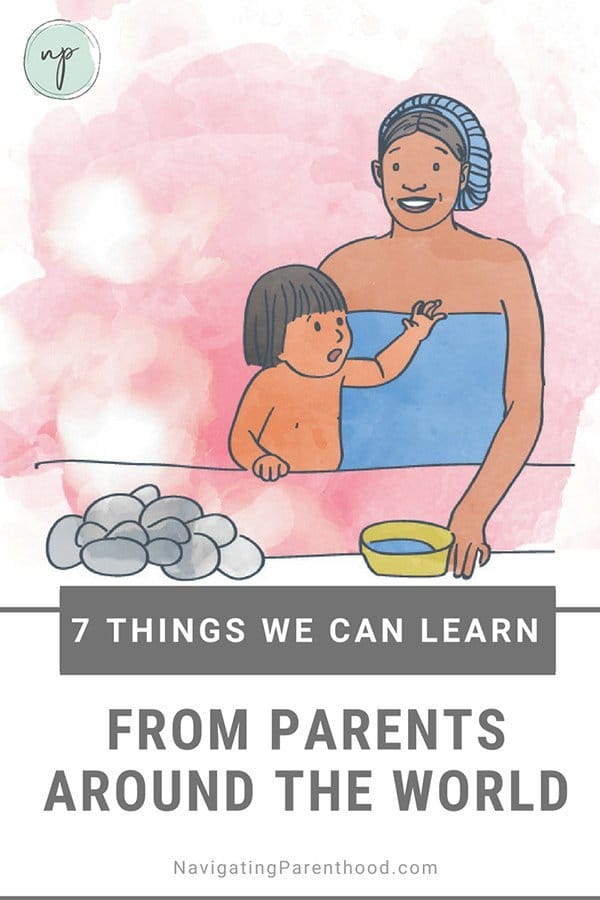7 Things We Can Learn from Parents Around the World
The world of parenting is full of judgment — People making comments if you breastfeed, people making comments if you bottle feed, etc. But instead of focusing on what we don’t like about another parent’s choices, maybe it’s time to look at the things we can learn from one another! Here are 7 things we can learn from parents around the world.
Illustrations and world parenting facts provided by Saving Spot.
Skip the Baby Talk
In France, many parents speak to infants and children in their regular voices. Aside from maybe being a bit nicer to a child than I am an adult, I’ve always done this myself and find that it allows kids to learn a language easier than when using baby talk and alternative names for things before teaching real words. If you love your swear words, this doesn’t mean treat them like a fellow sailor, but you don’t need to change the sound of your voice. It’s a great reminder to just keep talking to your baby and to explain everything that you’re doing. Move from talking to yourself in your own mind to talking to your baby all the time so that she can learn more about what things are called and why you’re doing something. Example: “Oh, we need to switch the laundry! Can you help me move the clothes from the washer to the dryer? The clothes are wet, so the dryer will spin them and extract the water until they’re dry enough to be folded and put in the dresser.”
Trust Kids with Age-Appropriate Responsibilities
In the Polynesian Islands, older children are expected to help take care of their younger siblings. This is also common in large families in the U.S., but those of us with just a few kids can really learn a bit from this in general. Now that my daughter is 7.5 she’s old enough to help me with her younger brother when I ask her to and she’s old enough to put her own dinner plate in the dishwasher, etc. I wouldn’t have her take over her brother’s care completely, but she can distract & entertain him so I can empty the dishwasher (otherwise he climbs in it).
I’m giving her more responsibilities when she turns 8 and has a newborn baby sister, too, because it will not only keep her involved but teach her quality values. I’ve met 11-year-olds who never had to make their own bed or put dishes away so they don’t know how. I want my daughter to feel ready when she moves out someday, not held back because I didn’t teach her how to be responsible and do more things for herself.
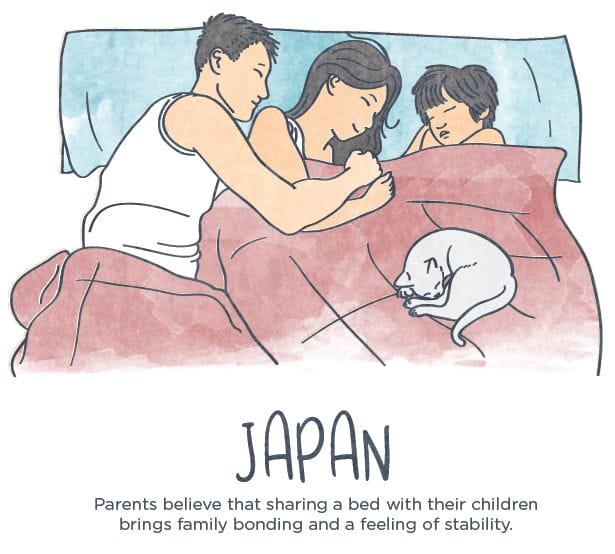
There’s a huge stigma around co-sleeping in general – but especially bed-sharing- in the U.S. When the common sense rules of co-sleeping safety are followed, it’s very safe a fantastic way to get sleep as a new parent — especially if you’re nursing. There’s a lot of worry about kids never sleeping in their own beds once sharing a room or bed with parents as a baby or tot, but many kids end up in their parents’ room at night due to a bad dream or something else, even if they have always slept separately from their parents. In Japan (and many other countries), parents aren’t scared of bed-sharing. IT isn’t for every family, and as your family grows the needs of the family may change, but the concept of co-sleeping (which could sometimes even mean kids sleeping in the same room, not the same bed) doesn’t need to be feared.
Take the Kids Outside
In Denmark, children are left outside to sleep for naps. This method of fresh air to help baby sleep can also be seen in shows like Call the Midwife, which takes place in England. Though leaving a baby outside to sleep in their stroller is not quite safe in the U.S., taking the baby for a walk or just simply holding baby and swaying or dancing outside is a wonderful change of scenery and great way to sooth a possibly overtired and fussy infant. It works well for tots, too. Older kids benefit from the Sun’s Vitamin D, socialization, and exercise when getting outside to play with other kids.
Eat Together as a Family
In Korea, the kids and adults eat the same food to encourage a healthy diet. This is something I’ve tried to do in my own home with about 50% success. It’s a work in process for most parents, I think, but something to work toward. Not making several meals for different people in the house? Imagine that! No matter how you eat, it’s important to eat together as a family, even if the whole family isn’t home from work in time, at least all the kids and one parent should eat together if they can. Kids are more likely to eat the same food as their parents if it’s what they see them eat regularly.
Create a Hygiene Routine
In Northwestern Guatemala, parents take a steam bath with their children every Saturday to cleanse, heal and purify their bodies, minds and spirits. Routines help to give children a point of reference and a sense of security. A routine involving hygiene is important for overall health and great for bonding. You could have face mask time with older children, salon days for haircuts every X months, or do baby yoga & massage after your infant or tot’s bath.
Make Room for Adventures
In Germany, nursery-age children are taken on overnight camping trips to develop confidence and care toward others. Though these trips are done with camp supervisors instead of parents, we could adjust this to the U.S. by saying yes to camping trips with the kids, or the grandparents watching the kids overnight once in a while. This is a lesson in making room for adventures as a family, or for your kids to create their own adventures when visiting with other relatives or friends if they get a chance to visit somewhere new and different.
What are some parenting tips that you’ve learned from other parents?
